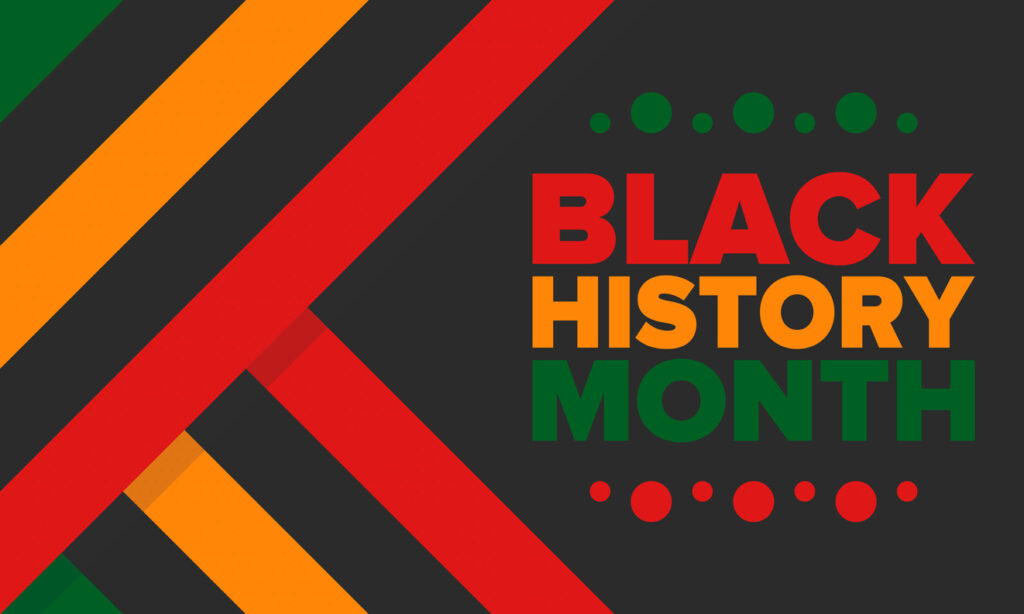Now I’m saying HR, but in all fairness, you can levy this towards your ExCo, your DEI teams, Black Employee Resource Groups, Anti-Racism Task Forces and the like. But for the purpose of this article, work with me as I address my fellow HR colleagues.
For Black History Month employers up and down the country are hosting events and celebrations to understand and recognise the contributions of people from African and Caribbean backgrounds. And technically this should be a rousing Black History Month article (even though we all know Black history exists all year round).
But it’s not.
And I want to pose an alternative, based on the role of HR in ensuring Black History Month isn’t just a cultural celebration, one for everyone to dive into the Black experience for a single month.
The events of the last eighteen months have shown there is much more work to be done, for Black colleagues to feel valued, seen and heard within the workplace. Therefore, when you look at it through this lens, you soon realise that cultural celebrations have their place, of course they do.
But you are missing an opportunity to do something meaningful during this month that actually addresses the root cause of why we need to have this designated month in the first place.
The root cause is not diversity and inclusion.
It’s racism.
Discrimination.
Marginalisation.
Exclusion.
Therefore instead of, or alongside, showcasing Black figures from the past and present, as well as devising food and cultural exchanges, HR led the way and used this month as an annual moment to calibrate the interventions, programs and choices you’ve made to dismantle workplace racism.
Difficult questions start from within
Our role in HR is to be enablers of cultural change. Champions, pioneers and custodians of an organisational culture that provides an employee experience for all (equality) whilst, at the same time, recognising that for some, dependent on social context, it is necessary to prioritise them (equity).
Black History Month is your annual opportunity to ask yourself and your ExCo challenging questions, to ensure you are taking real steps towards change, rather than performative actions that make you look busy but changes very little.
This internal work should revolve around asking questions. Of yourself and your organisation.
-
How do I feel about this topic of racism? What journey have I been on and what is different now, in comparison to previous years?
-
Am I equipped to lead my organisation in this area? Do I understand racism as a system and how it manifests itself with our company? And if not, what have I done to make sure I’m not unintentionally perpetuating harm?
-
Am I the only one who is championing this? Where does the Board sit with this? Why is it that I’m not sure?
-
What conversations are we still not having?
Calibrating impact
In partnering with organisations of various size, industry and global footprint, it is increasingly apparent that, despite the increased level of activity employed to improve the working lives of Black colleagues, there is a disconnect between progress and impact.
Yes, HR, DEI and anti-racism task force teams can demonstrate a list of activities and interventions, yet when they talk to Black colleagues as part of ongoing listening and feedback loops, the story they hear is very different.
Life does not feel that much different for Black colleagues and there are many reasons for this, but two consistent themes have emerged:
-
Action and intervention is geared towards getting white and other non-Black colleagues on side.
Raising awareness
Providing safe spaces for colleagues to ask questions.
With a view that pace of change is dictated by how comfortable the rest of the workforce feel.
Which is different to prioritising the colleagues most impacted and being driven by making a difference for them.
-
The focus is exclusively on representation. The hiring as many Black colleagues as possible to internally and externally paint a picture that progress is being made.
The problem? There is no correlation between representation and the presence, or lack thereof, of racism.
The lack of representation is a symptom not the cause.
It is an output of doing the necessary work to address inequities within your organisation. If your budget, resources and priorities are about representation, without putting in the work to dismantle racism, then it is performative.
For true progress towards racial equity
Calibrating the journey so far isn’t about ticking the box of, ‘We did what we said we were going to do, let’s give ourselves a pat on the back’.
This is about impact. About listening.
If you do not have a culture of continuous listening to Black colleagues and ask the question, ‘How is life better for you here?’ or even, ‘Is it better?’, you’ll never know if your interventions, programmes and choices have improved workplace equity. If they are making a difference.
Listening to the experiences of Black colleagues is the true test of whether or not progress is made.
It might not be popular, but it’s necessary
Focusing on food, music and whatever you do for Black History Month is fine.
But how much are you, and your organisation, focusing on what it’s going to take to retain the Black colleagues you have?
Is Black History Month an opportunity to check in and listen to how your Black colleagues feel, and have them feedback and critique the performance of the business in this area?
In the same way, their performance is evaluated and somehow seems to come up lacking, as depicted by the lack of Black colleagues (plural) in the most senior levels of your company.
Turnabout is fair play
I know it’s not as ‘people pleasing’ to be the one asking the questions I’ve suggested, but it all goes back to the same point.
Are you seeking to look good or to make a difference?
[cm_form form_id=’cm_65a14c3f5da64′]
Interested in this topic? Read Changing the Black History Month narrative for a better company culture






